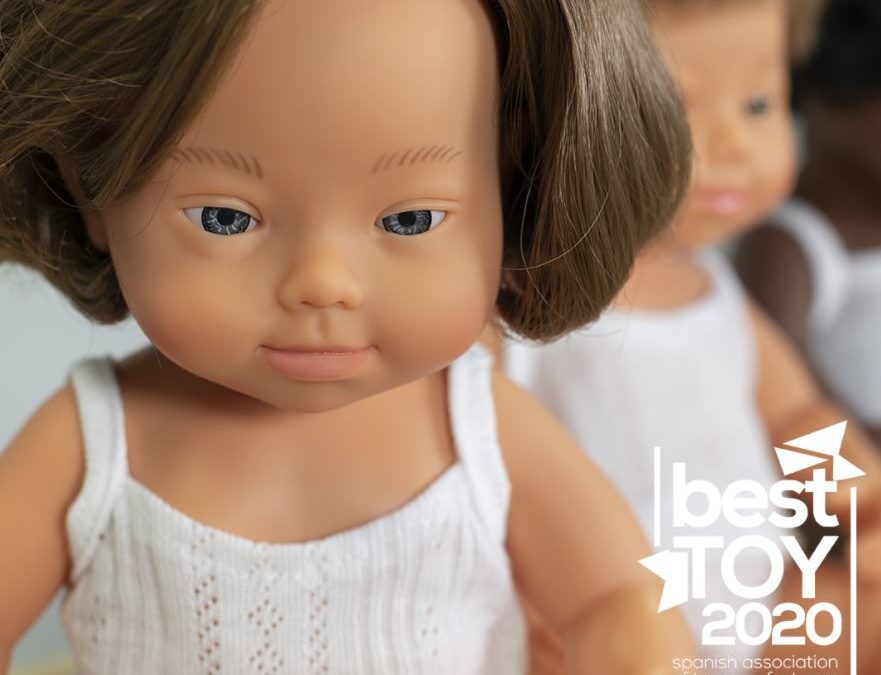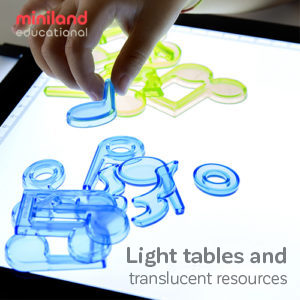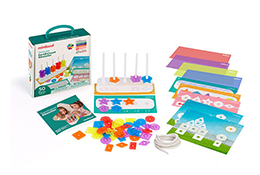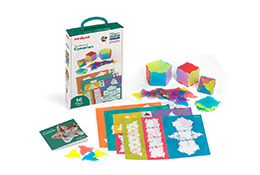March 21, 2021 marks World Down Syndrome Day (WDSD), a day dedicated to raising awareness about Down syndrome and celebrating individuals around the world living with the genetic condition.
According to the World Down Syndrome Day International website, the date for WDSD being the 21st day of the 3rd month was selected to signify the uniqueness of the triplication (trisomy) of the 21st chromosome which causes Down syndrome.
As children may meet other students and/or adults with Down syndrome in their academic lives, your approach on this topic may help influence their attitudes and behavior towards people with DS for the rest of their lives. Don’t be daunted. There are several ways to help educate your students on the best ways to show respect, acceptance and kindness for those with DS (and in turn, those without).
Many people without Down syndrome aren’t sure of “how to act” or “what to say” “what not to say.” The answer is actually very simple: treat them the same way you’d like to be treated. With kindness and respect.
Here are some easy suggestions and activities to educate your students on celebrating and respecting individuals with DS:
1. Play a Simple Video all about WDSD:
World Down Syndrome Day International created a video shared by the United Nations to help educate both children and adults on the reasons for this important day and what it means to the DS community. Sharing this video with your students, both in-person and virtually, is a great way to start the narrative:
What is World Down Syndrome Day? – YouTube

2. Use the proper terminology:
When Miniland was first creating our award-winning line of Dolls with Down syndrome, extensive research was done to ensure that the proper terminology and phrasing was used. The World Down Syndrome Association of Singapore created a helpful list of Do’s and Don’ts to better educate yourself and in turn, simplify the approach for your students. For example, they point out that people with DS prefer you to describe the person, not the disability: a person with Down syndrome, and NOT a Down syndrome person NOR a Down’s kid.
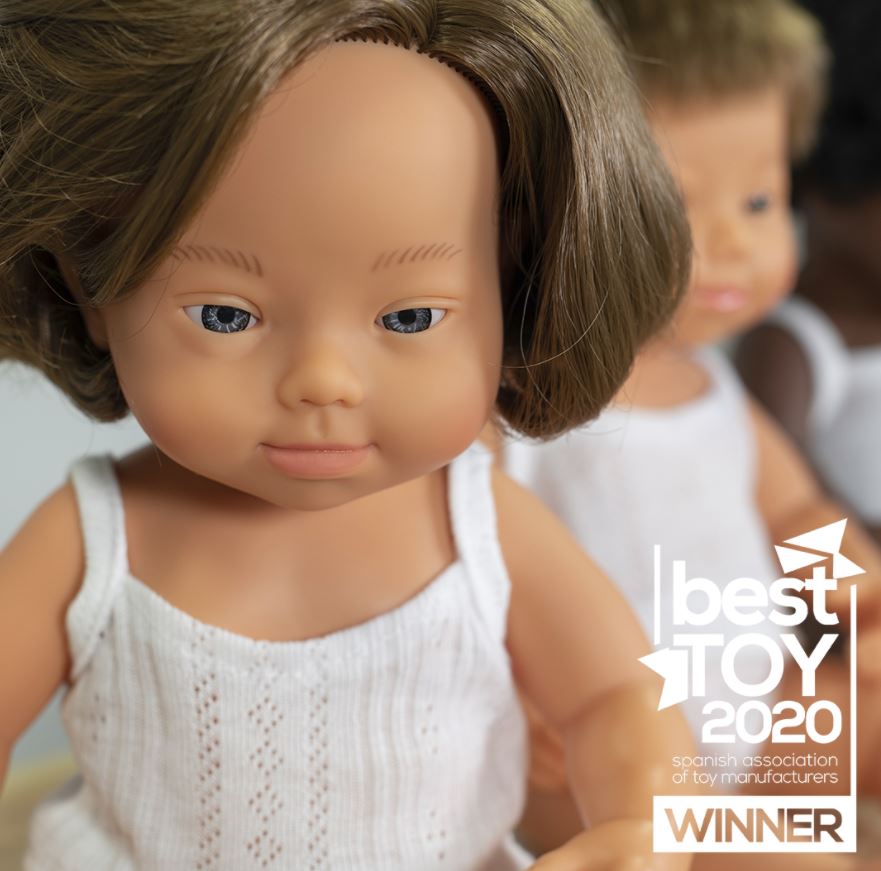
3. Introduce play into the narrative: One of the best ways to practice social skills is through play. At Miniland, we of course are huge proponents of learning through play. Teachers love using our dolls for role-playing, enhancing social skills, and showcasing diversity, helping little ones learn about inclusivity and acceptance. Both children with Down syndrome and those without need access to toys that closely resemble them to feel both a connection to a doll that’s just like them or that may look like a friend or family member. To fully support representation and acceptance of others, we made a conscious effort to create dolls of varying genders, ethnicities and skin tones. With our Dolls with Down syndrome, we wanted to begin the narrative early to pave the way to normalize the condition, showcasing the sweet facial characteristics of babies with Down syndrome in a realistic and respectful way.
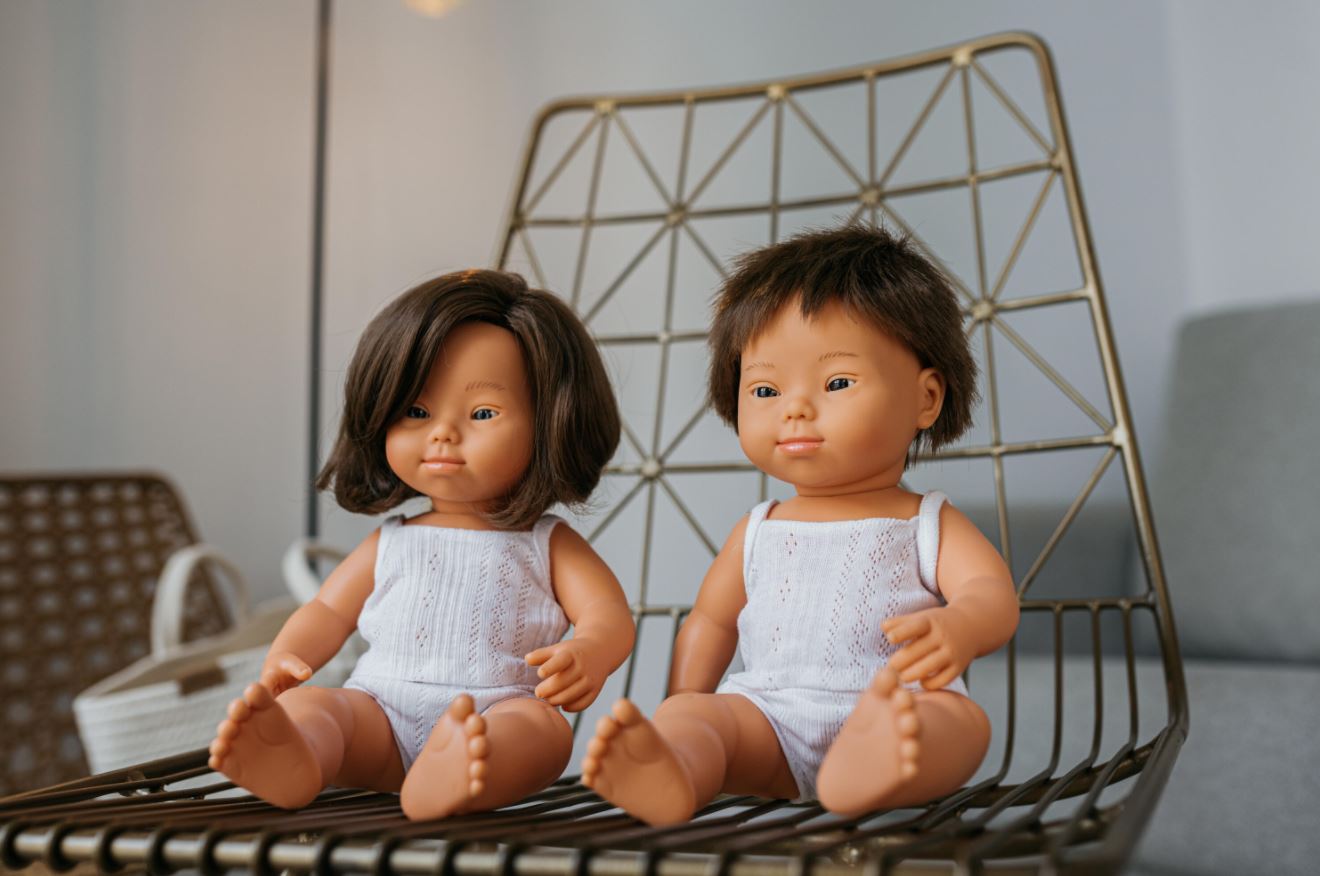
Let your students play with the dolls and ask questions if they have them. For example, a student might want to know why the dolls’ eyes may look different than theirs. Answering with the facts, in a simplified way, will help the student understand.
Q&A Discussion examples:
1) Q: “Miss Hernandez, why does the doll have eyes that look different?”
A: “Great question Sarah! It’s because babies born with Down syndrome have eyes that have extra skin around them. So they look like almond eyes.”
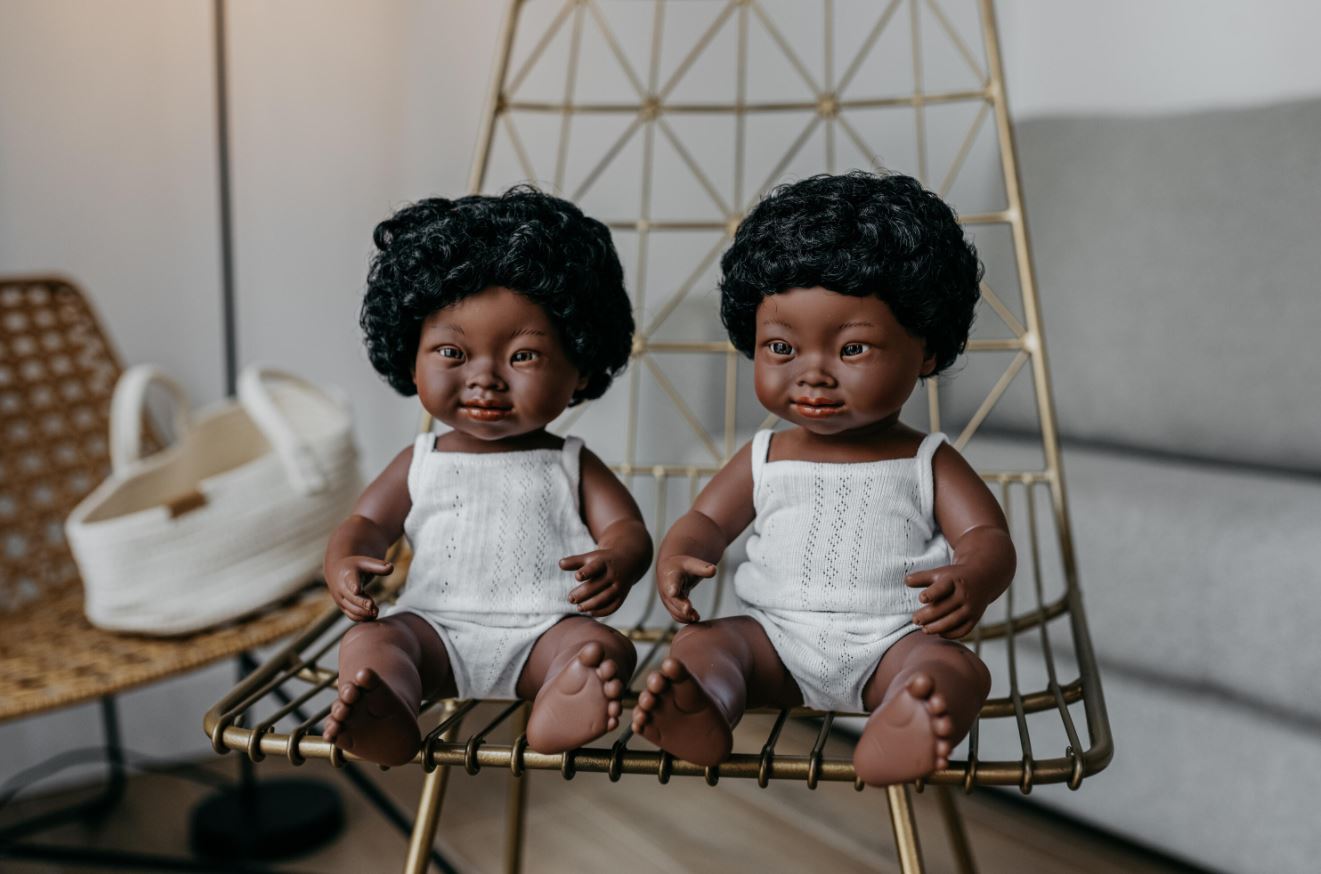
2) Q: “Miss Hernandez, why are some babies born with Down syndrome and other babies don’t have it?”
A: “Another awesome question Joey. That’s something that actually no one really knows. They just know the science about how it all works together to make a baby with Down syndrome but not why it happens. The most important thing to remember is that it has nothing to do with the parents, or the color of their skin, or their religion, or if they went to school or not or have money or not. It’s just something that happens.”
3) Q: “Miss Hernandez, do kids with Down syndrome like the same toys and things that we do?”
A: “Absolutely! They play and laugh and do things just like you do. They might even have collections of different cool things like cards or pens or yo-yos. And they’ll love to tell you about it so it’s great to ask what they have or what their favorite one is. Talk to them just like you would any other friend you have in your classroom. Be nice and be excited about what they have to say to you!”
Opening the discussion for questions about Down syndrome gives you an opportunity to highlight facts from disrespectful narratives or terminology. It will also help other students who may be shy or embarrassed about asking a question gain the knowledge they need to treat people with DS kindly.
By fostering acceptance and inclusivity of those that look “different” from ourselves, we can create an environment that is both healthy and imperative to a child’s view of the world that lasts long into adulthood. For more information on World Down Syndrome Day, head to Global Down Syndrome.org.
